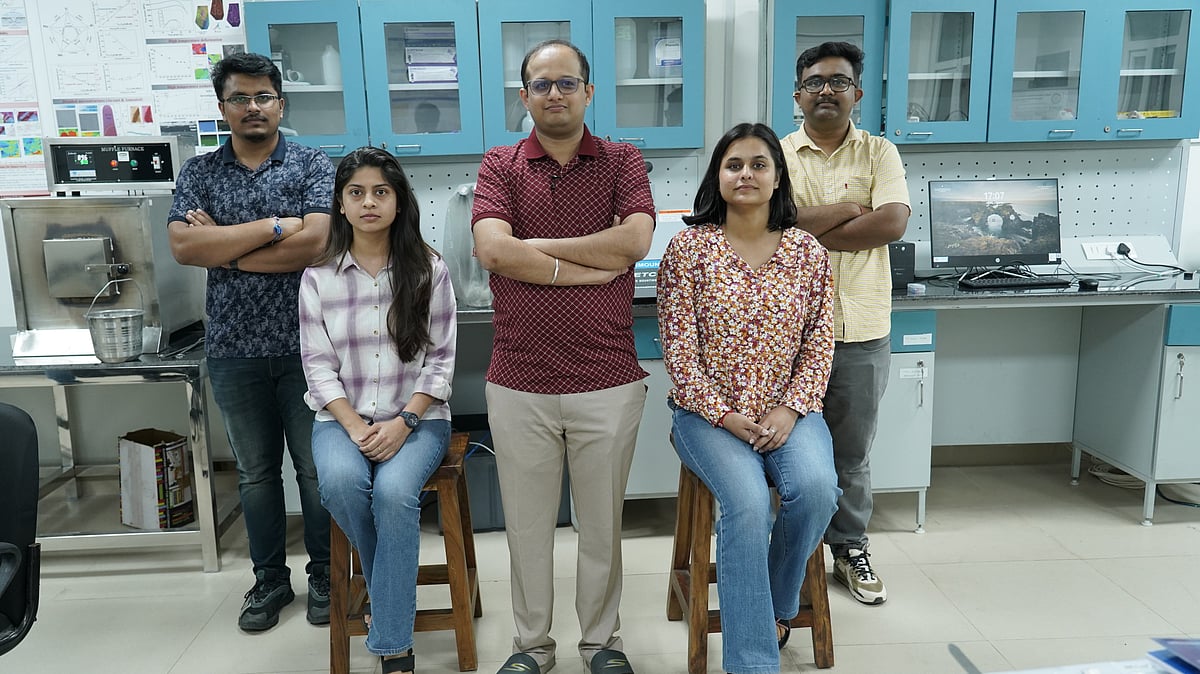Jaipur: Researchers at the Indian Institute of Technology (IIT) Jodhpur have developed a Titanium-Aluminide (TiAl) alloy that is claimed to redefine materials used in the aerospace and defence sectors. This new material, named TiAl-CA, solves long-standing challenges in developing lightweight metals for jet engine components, achieving an unprecedented combination of high-temperature strength and low weight.
Current alloys used in aircraft engines are either too heavy or become weak at the high temperatures where engines operate. The new material—developed by Prof. S. S. Nene and his team of Ph.D. students A. R. Balpande and A. Dutta from the Advanced Materials Design and Processing Group under the Department of Materials Engineering in IIT Jodhpur maintains a gigapascal-level yield strength—a measure of its incredible resilience—even at soaring temperatures of 900 °C. Crucially, it achieves this unprecedented yield strength while retaining excellent oxidation resistance at elevated temperatures, which is a major engineering breakthrough.
The work has been published in the journal “Materials Horizons.
The research team said that previous high-strength TiAl alloys required the addition of elements like boron or carbon, which made them brittle and difficult to work with, but this new alloy has been successfully engineered to be boron-free, using a sophisticated mix of metals such as Niobium (Nb), Molybdenum (Mo), Tantalum (Ta), Tungsten (W), and Vanadium (V) in a TiAl matrix. This innovative approach ensures the alloy is strong without becoming fragile.
The new alloy’s ability to retain its strength at high temperatures surpasses that of traditional Nickel-based superalloys (like IN718) under compressive loading.

The successful design of this ultralight yet ultra-strong alloy promises a massive advantage for manufacturing fuel-efficient aeroengine components. Its adoption in the aerospace and defence sectors could significantly reduce the weight of components, leading to greater efficiency and a smaller carbon footprint.
The researchers plan to pursue further testing, including scaling up casting volumes and testing for creep and fatigue, to bring this next-generation material closer to real-world application.
The TiAl-CA alloy is a foundational step towards manufacturing next-generation aircraft and defence systems that are not only lighter and more efficient but also made in India.








